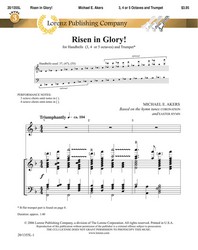- |
User Links
Now Blessed Be Jehovah God

Now blessed be Jehovah, God, The God of Israel
Tune: CORONATION (Holden)Published in 24 hymnals
Printable scores: PDF, MusicXMLPlayable presentation: Lyrics only, lyrics + musicAudio files: MIDI, Recording
Representative Text
1 Now blessed be Jehovah God,
the God of Israel,
who only doeth wondrous works,
his glory that excel;
who only doeth wondrous works,
in glory that excel.
2 And blessed be his glorious name
to all eternity;
the whole earth let his glory fill;
amen: so let it be;
the whole earth let his glory fill;
amen: so let it be.
Source: Trinity Psalter Hymnal #564
Text Information
| First Line: | Now blessed be Jehovah, God, The God of Israel |
| Title: | Now Blessed Be Jehovah God |
| Meter: | 8.6.8.6 |
| Language: | English |
| Copyright: | Public Domain |
Notes
Scripture References:
st. 1 = Ps. 72:18
st. 2 = Ps. 72:19
Each of the internal "books" or original anthologies within the book of Psalms concludes with its own doxology. Psalm 72, at the end of Book II, features a doxology at verses 18 and 19. That biblical text is paraphrased in this hymn, a paraphrase originally published in the 1650 edition of the Scottish Psalter. However, what was originally a standard four-line common-meter text has been stretched into common meter of six lines to suit the tune.
"Now Blessed Be" is cast in the berakah form common in Jewish worship. God is to be blessed, or praised, because of his wondrous works and mighty deeds (st. 1) and because his saving acts reveal his glory throughout the earth and throughout eternity (st. 2). Amen and Amen! So shall it be! (For further discussion of Psalm 72 see PHH 72.)
Liturgical Use:
As a doxology anytime, but because its basis is Psalm 72 (one of the finest messianic psalms), especially during Advent, Epiphany, and Ascension; missionary festivals.
--Psalter Hymnal Handbook, 1988
Tune
CORONATION (Holden)Like MILES LANE (470), CORONATION was written for this text. Oliver Holden (b. Shirley, MA, 1765; d. Charlestown, MA, 1844) composed the tune in four parts with a duet in the third phrase. The tune, whose title comes from the theme of Perronet's text, was published in Holden's Union Harmony (1793).…
DUNDEE (Ravenscroft)
DUNDEE first appeared in the 1615 edition of the Scottish Psalter published in Edinburgh by Andro Hart. Called a "French" tune (thus it also goes by the name of FRENCH), DUNDEE was one of that hymnal's twelve "common tunes"; that is, it was not associated with a specific psalm. In the Psalter Hymnal…


 My Starred Hymns
My Starred Hymns






